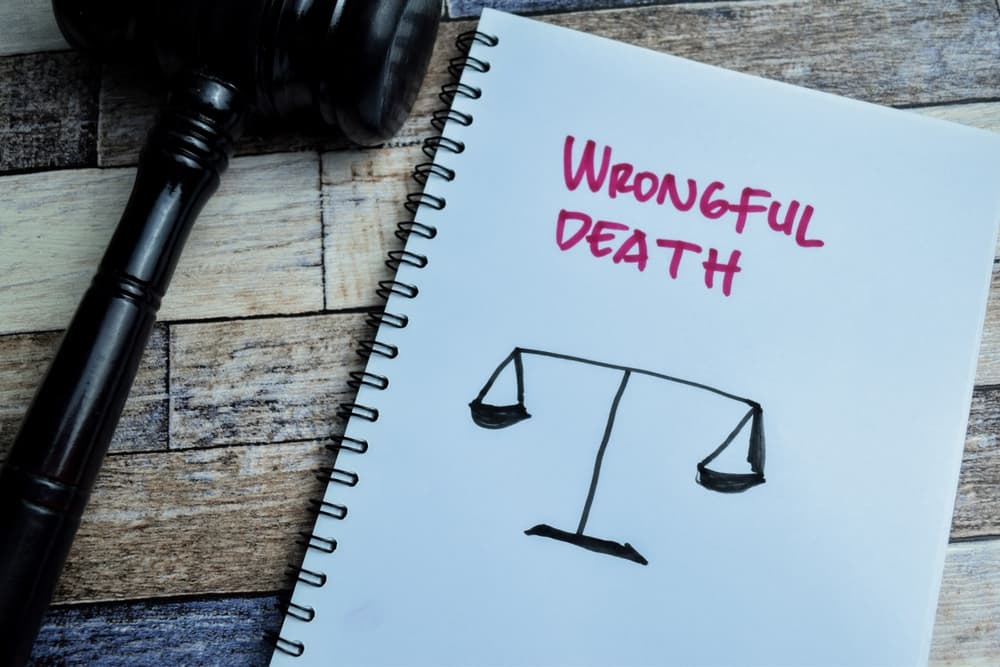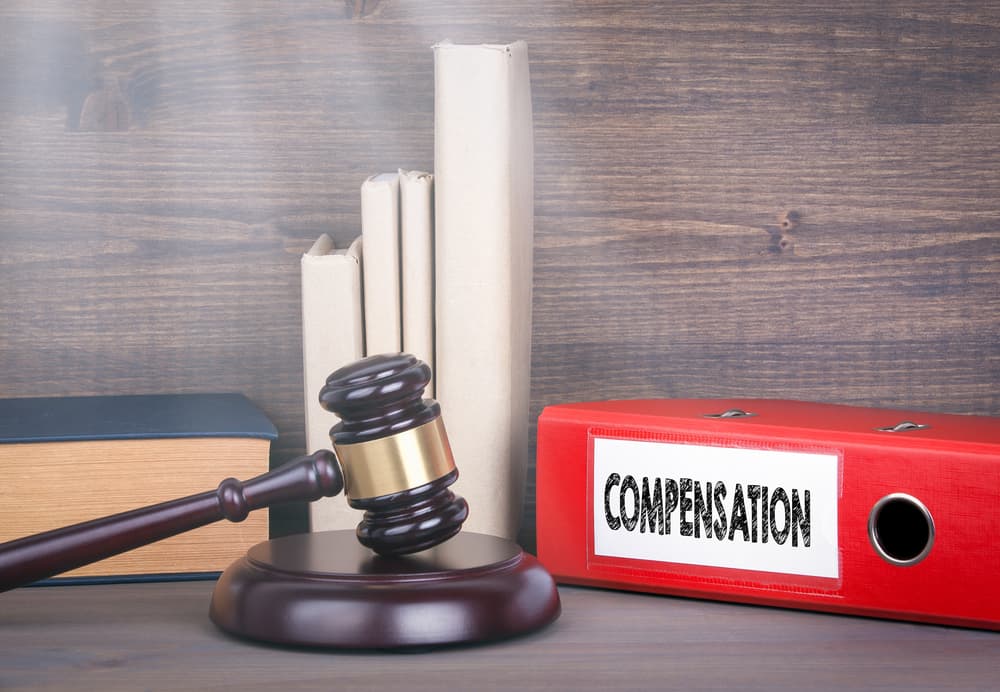Losing a loved one in a car accident is a devastating experience that no one should have to go through. The emotional pain and grief can overwhelm you, and the financial burden of medical bills, funeral expenses, and lost income can add even more stress to an already difficult situation.
If someone else's negligence or wrongdoing caused the accident that claimed your loved one's life, you may file a wrongful death claim to seek compensation for your losses. Consult a wrongful death lawyer immediately.
What Is a Wrongful Death Claim?
You can file a wrongful death claim, a type of civil lawsuit when a loved one’s death results from another person's negligence, recklessness, or intentional wrongdoing, such as:
- Speeding
- Drunk driving
- Distracted driving (e.g., texting while driving)
- Reckless or aggressive driving
- Failing to obey traffic laws or signals
- Defective or poorly maintained vehicles
The purpose of a wrongful death claim is to seek compensation for the losses suffered by the deceased person's survivors, including:
- Medical expenses related to the accident
- Funeral and burial expenses
- Lost income and benefits (e.g., if the deceased person was a primary breadwinner for the family)
- Loss of companionship, guidance, and support
- Pain and suffering experienced by the survivors
To succeed in a wrongful death claim, the plaintiff (the person filing the lawsuit) must typically prove:
- The defendant (the person you are suing) owed a duty of care to the deceased, such as driving safely and following traffic laws.
- The defendant breached this duty of care through their negligent, reckless, or intentional actions.
- The defendant's breach of duty directly and caused the deceased person's death.
- The plaintiff suffered damages due to the death (e.g., financial losses and emotional distress).
If you can establish these elements, you may be entitled to recover damages from the defendant to compensate for your losses.
Who Can File a Wrongful Death Claim?
The specific rules and procedures for filing a wrongful death claim vary by state, but generally, the following parties may file a claim:
The Deceased Person's Surviving Spouse

In most states, the deceased person's surviving spouse has the primary right to file a wrongful death claim. This occurs because the spouse often experiences the most significant emotional and financial losses due to the death.
If the deceased person was married at the time of their death, their surviving spouse can typically file a wrongful death claim to seek compensation for losses such as:
- Loss of companionship, love, and affection
- Loss of financial support and household services
- Emotional distress and mental anguish
The surviving spouse can also recover damages for loss of consortium, which refers to the loss of the intimate relationship and companionship that the spouse shared with the deceased person.
If the deceased person was undergoing a divorce or living apart at the time of their death, the surviving spouse's right to file a wrongful death claim may be affected. Consult an experienced wrongful death attorney to understand your legal rights and options in these cases.
The Deceased Person's Surviving Children
If the deceased person had surviving children, they may also be entitled to file a wrongful death claim, either along with the surviving spouse or on their behalf.
In general, the deceased person's surviving children can seek compensation for losses such as:
- Loss of parental guidance, support, and nurturing
- Loss of financial support and inheritance
- Emotional distress and mental anguish
The specific rules for who can file a wrongful death claim on behalf of surviving children can vary from state to state. Only minor children are entitled to file a claim in some states, while adult children may be eligible in others.
In cases where the deceased person had children from a previous relationship or marriage, the right to file a wrongful death claim may be more complex. It's important to consult with an experienced wrongful death lawyer to understand how your state's laws apply to your situation.
The Deceased Person's Surviving Parents
In certain situations, the surviving parents of the deceased may have the right to file a wrongful death claim, particularly if the deceased was a minor or was unmarried at the time of their death.
The specific rules for when parents can file a wrongful death claim can vary from state to state, but in general, parents can seek compensation for losses such as:
- Loss of companionship and support from their child
- Emotional distress and mental anguish
- Medical and funeral expenses related to their child's death
The right of parents to file a wrongful death claim may be limited or may depend on factors such as the age of the deceased person, their marital status, and whether they had any surviving children.
It's important for parents who have lost a child in a car accident to consult with an experienced wrongful death attorney to understand their legal rights and options for seeking compensation.
The Personal Representative of the Deceased Person's Estate
The right to file a wrongful death claim may belong to the personal representative of the deceased person's estate rather than to individual family members.
The court appoints the personal representative (the executor or administrator) to manage the deceased person's estate and distribute their assets according to their will or state law.
In some states, the personal representative is the only party who has the legal right to file a wrongful death claim on behalf of the estate and any surviving family members.
The personal representative may seek compensation for losses suffered by the estate, such as:
- Medical and funeral expenses related to the deceased person's death
- Lost income and benefits that the deceased person may have earned if they had lived
- Property damage related to the accident
According to state law, the personal representative may also distribute damages recovered in the wrongful death claim to the appropriate surviving family members.
If a deceased person's estate appointed you as the personal representative and you are considering filing a wrongful death claim, consult an experienced lawyer who can guide you through the process and aid you in understanding your legal rights and responsibilities.
In some states, other family members (such as siblings or grandparents) may also be entitled to file a wrongful death claim, depending on the specific circumstances of the case.
In most states, there is a time limit (known as the statute of limitations) for filing a wrongful death claim. If you wait too long to file your claim, you cannot recover any damages, even if your case has merit.
The specific statute of limitations for wrongful death claims can vary from state to state, but it is typically between one and three years from the date of the deceased person's death.
Steps to Take When Filing a Wrongful Death Claim
If you believe that you have grounds for a wrongful death claim after a car accident, to protect your rights and build a strong case:
Gather Evidence
One of the most important things you can do to support your wrongful death claim is to gather as much evidence as possible about the accident and your loved one's death.
This may include:
- Police reports and accident reports
- Photos of the accident scene and any vehicle damage
- Witness statements
- Medical records and autopsy reports
- Bills and receipts for medical expenses, funeral costs, and other related expenses
The more evidence you have to support your claim, the stronger your case will be and the better your chances of recovering the compensation you deserve.
Consult a Wrongful Death Attorney
Hire an experienced wrongful death attorney to guide you through this emotionally challenging process.
An attorney who handles car accident and wrongful death cases can support you by:
- Letting you know your legal rights and options
- Gathering and preserving important evidence
- Identifying all potential defendants and sources of compensation
- Negotiating with insurance companies and other parties on your behalf
- Filing your wrongful death claim and represent you in court, if necessary
An experienced wrongful death lawyer can also explain the potential value of your claim and advocate for the full and fair compensation you deserve.
File Your Claim
Once you gather evidence and consult an attorney, the next step is to file your wrongful death claim.
This typically involves:
- Drafting and filing a complaint with the appropriate court
- Serving the complaint and other legal documents on the defendant(s)
- Engaging in discovery (the process of exchanging evidence and information with the other parties to the case)
- Attending court hearings and other legal proceedings
- Negotiating a settlement or taking the case to trial, if necessary
Your attorney will guide you through each step of the process and work to build the strongest possible case on your behalf.
Be Prepared for Challenges
Filing a wrongful death claim can be a challenging and emotional process. You may face resistance from insurance companies, defense attorneys, and other parties interested in minimizing or denying your claim.
Be prepared for the possibility that your case may take months or even years to resolve, depending on the complexity of the issues involved and the willingness of the other parties to negotiate a fair settlement.
Throughout the process, establish a strong support system, including family members, friends, and mental health professionals who can support you as you cope with the emotional challenges of a wrongful death claim.
Damages in a Wrongful Death Claim
If your wrongful death claim is successful, you may be entitled to recover various types of damages, including:
Economic Damages

Economic damages aim to compensate the survivors of the deceased for the financial losses they have incurred due to the death.
These may include:
- Medical expenses related to the accident and the deceased person's final illness or injury
- Funeral and burial expenses
- Lost income and benefits (e.g., if the deceased person was a primary breadwinner for the family)
- Loss of future earnings and benefits (e.g., if the deceased person had a long career ahead of them)
These damages are typically calculated based on the actual financial losses incurred by the survivors.
Non-Economic Damages
Non-economic damages aim to compensate survivors for intangible losses resulting from the death, including:
- Loss of companionship, guidance, and support from the deceased person
- Emotional distress and mental anguish suffered by the survivors
- Loss of consortium (the loss of the benefits of a family relationship, such as love, affection, and sexual relations)
These damages require a lawyer to quantify, because the amount awarded may depend on the closeness of the relationship between the deceased person and the survivors, the deceased person's age and health, and the circumstances of the death.
Punitive Damages
Sometimes, the court may award punitive damages in a wrongful death claim for the defendant's especially malicious, oppressive, or fraudulent actions. Punitive damages punish the defendant for especially egregious or reckless conduct and deter such behavior.
Contact a Wrongful Death Lawyer
If you have lost a loved one in a car accident caused by someone else's negligence or wrongdoing, you may file a wrongful death claim to seek compensation for your losses.
An experienced wrongful death attorney can aid your understanding of your legal rights and options and guide you through the process of pursuing justice for your loved one.
Don't wait to take action - contact a trusted personal injury lawyer today to schedule a free consultation and learn more about how they can support you as you seek the compensation and closure you deserve.
Professional legal guidance can significantly improve your chances of effectively navigating the complexities of wrongful death claims and respecting your rights.

